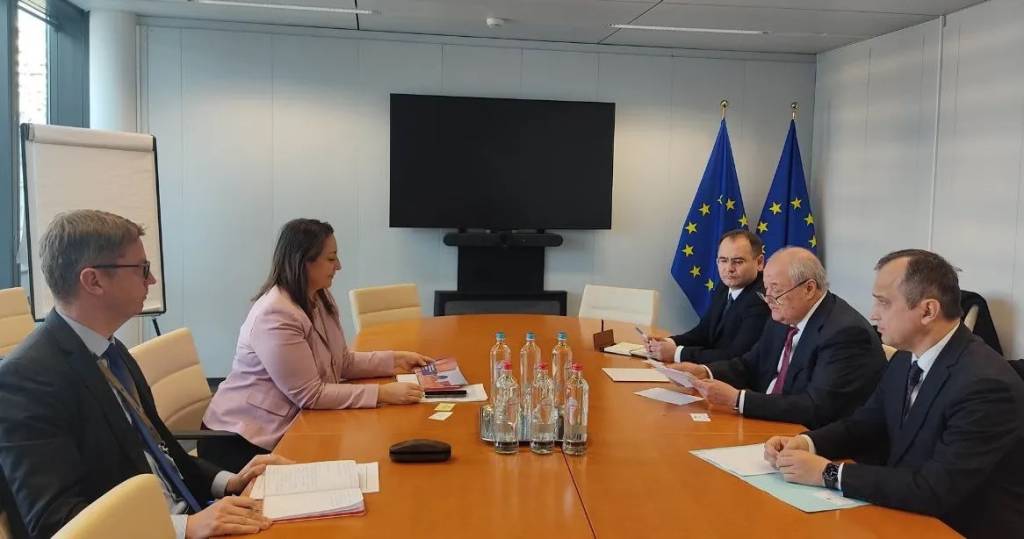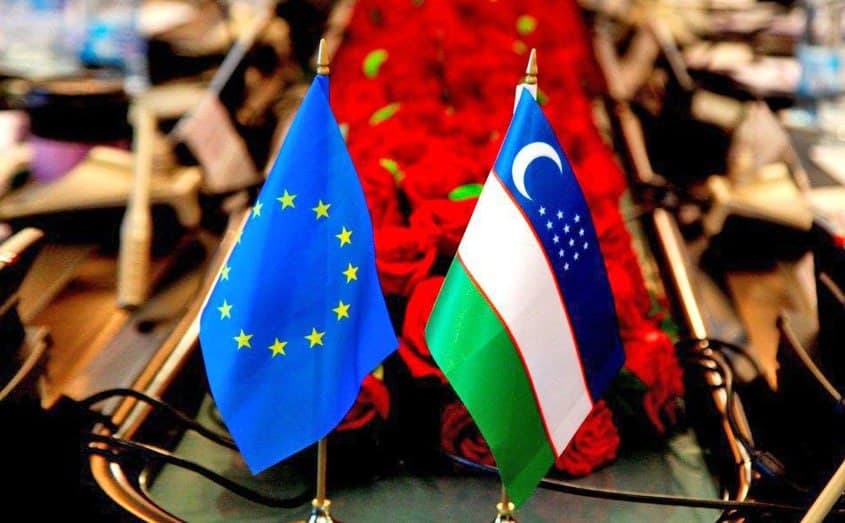Abdulaziz Kamilov, the Special Representative of the President of Uzbekistan for Foreign Policy, engaged in high-level talks with Jivka Petkova, the Director of Coordination and Administration at the Executive Office of the President of the European Commission, in Brussels, the National Information Agency of Uzbekistan reported. The discussions primarily centered around reinforcing the bilateral relations between Uzbekistan and the European Union (EU), with a particular emphasis on the forthcoming Enhanced Partnership and Cooperation Agreement (EPCA).

The EPCA, which was initialed on July 6, 2022, took center stage during the negotiations, with both parties expressing a keen interest in its swift ratification. The agreement is poised to be a cornerstone in the Uzbekistan – EU relationship, providing a comprehensive framework for collaboration and cooperation across various sectors.
Jivka Petkova commended Uzbekistan for its dedicated efforts in combating climate change and praised the country's initiatives to alleviate its adverse effects. In a show of support, Petkova endorsed Uzbekistan's proposal to host the International Climate Forum in 2024 in the historic city of Samarkand. This signifies a mutual commitment to addressing global environmental challenges through international cooperation.
The meeting also delved into the upcoming joint events, encompassing both bilateral and interregional dimensions. The discussions underscored the shared commitment to fostering practical interaction and regional development.

Uzbekistan – European Relations: A Closer Look
Uzbekistan – EU relations have been marked by mutual cooperation and support. The European Union has consistently backed Uzbekistan's reform agenda through both technical and financial assistance. The areas of collaboration span a wide spectrum, including regional cooperation, security, human rights, media, environment and climate change, green transition, and digitalization, as well as issues of international concern.
From 2014 to 2020, the EU's financial aid to Uzbekistan amounted to €168mn, representing a significant 124% increase compared to the 2007-2013 period. The EU's development assistance during this time has primarily focused on rural development, encompassing projects related to sustainable water resource management, irrigation, horticulture, livestock, vocational training, and local administrative reform.
In line with the Commission's priorities, the EU has proposed key focus areas and sectors for 2021-2027, including effective governance and digital transformation, inclusive digital and green growth, and the development of a smart, eco-friendly agri-food sector.
Follow Daryo's official Instagram and Twitter pages to keep current on world news.
Comments (0)